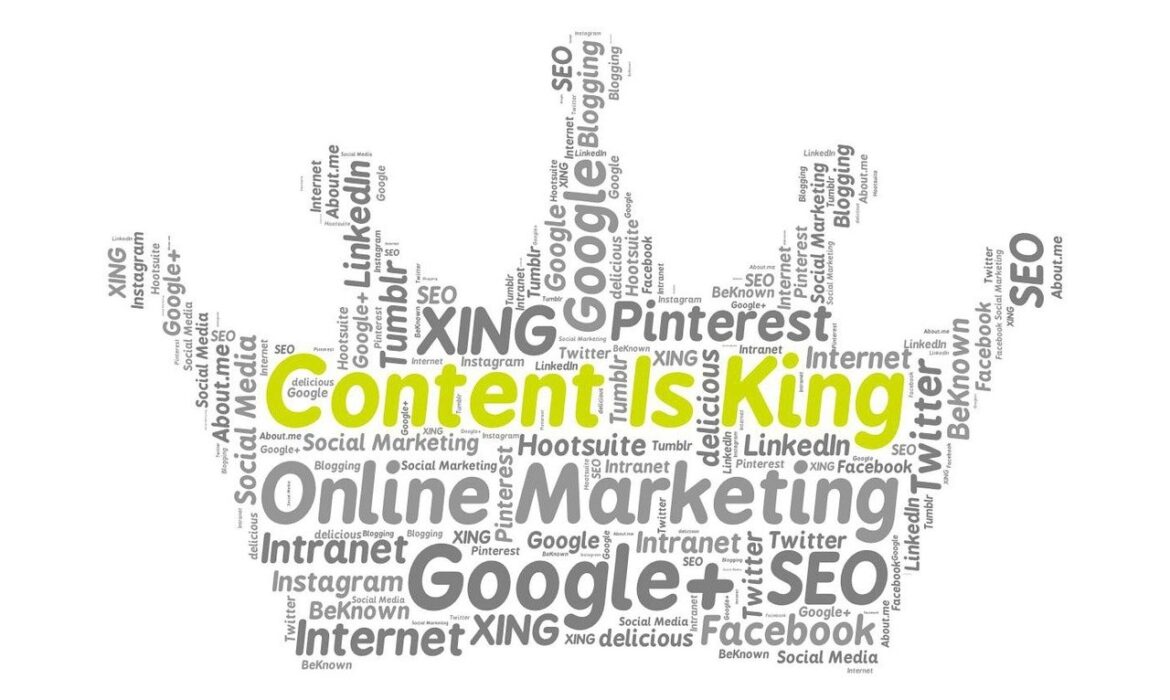
The Power of Content Marketing
As a content marketing expert, I understand the significance of content marketing in today’s digital landscape. Content marketing services focus on creating and distributing valuable and relevant content to attract and engage a specific target audience. This approach aims to build brand awareness, establish credibility, and drive customer action.
Introduction to Content Marketing
Content marketing is a strategic marketing approach that involves creating and sharing valuable, informative, and entertaining content to attract and retain a clearly defined audience. Unlike traditional marketing methods that rely on interruptive tactics, such as TV commercials and print ads, content marketing focuses on delivering content that people actively seek out and want to consume.
By providing valuable information, addressing pain points, and offering solutions, content marketing establishes a connection with the audience. It aims to build trust and credibility, positioning the brand as a reliable source of information and expertise.
Benefits of Content Marketing
Content marketing offers several benefits that can contribute to the success of a business. Some of the key advantages include:
-
Increased Brand Awareness: By consistently delivering valuable content, businesses can increase their brand visibility and reach a wider audience. Content that resonates with the target audience can be shared, leading to increased exposure and brand recognition.
-
Established Credibility and Authority: Creating high-quality content helps businesses showcase their expertise in their respective industries. By sharing valuable insights and knowledge, businesses can position themselves as thought leaders, earning the trust and respect of their audience.
-
Enhanced Customer Engagement: Engaging content that addresses the needs and interests of the target audience encourages interaction and fosters a sense of community. This can lead to increased customer loyalty and advocacy.
-
Improved Search Engine Visibility: Creating optimized content can boost search engine rankings, making it easier for potential customers to discover the business. By incorporating relevant keywords and following best practices for search engine optimization (SEO), businesses can improve their online visibility and attract organic traffic.
-
Increased Lead Generation and Conversions: Valuable content attracts and engages potential customers, leading to increased lead generation. By providing valuable resources, businesses can nurture leads throughout the buyer’s journey and guide them towards making a purchase decision.
Content marketing services utilize various formats, including blog posts, videos, infographics, and social media posts, to deliver valuable and engaging content to the target audience. By consistently providing valuable content over time, businesses can build long-term relationships with their audience, foster customer loyalty, and drive business growth.
In the next section, we will explore the different types of content marketing services, such as blog posts, video content, and infographics, to understand how businesses can leverage these formats to effectively engage their target audience.
Types of Content Marketing Services
When it comes to content marketing services, there are various types of content that can be utilized to engage and attract audiences. Each type of content has its own unique benefits and can be tailored to suit the specific goals and preferences of a business or brand. Here are three commonly used types of content marketing services:
Blog Posts
Blog posts are a popular and effective form of content marketing. They provide an opportunity to share valuable information, insights, and expertise with the target audience. Blogging allows businesses to establish themselves as industry thought leaders and build trust with their readers.
According to SEMrush, 55% of marketers consider blog content creation as their top inbound marketing priority. Blog posts can cover a wide range of topics and formats, including how-to guides, listicles, case studies, and interviews. They can be optimized for search engines to drive organic traffic and increase visibility.
Video Content
Video content has gained significant popularity in recent years. It is a highly engaging and versatile medium that allows businesses to convey their message in a visually appealing and easily digestible format. Videos provide an opportunity to showcase products, demonstrate processes, or tell captivating stories.
According to SEMrush, 72% of customers prefer to learn about a product or service through video. Video content can be shared on various platforms, such as websites, social media channels, and video-sharing platforms like YouTube. It allows businesses to connect with their audience on a deeper level and can significantly enhance brand awareness and engagement.
Infographics
Infographics are visual representations of information or data, combining text, images, and graphics to convey complex concepts in a simplified and visually appealing manner. They are highly shareable and can quickly grab the attention of the audience. Infographics are particularly effective in presenting statistics, research findings, or step-by-step processes.
According to SEMrush, 41.5% of marketers consider infographics to be the most engaging type of content in terms of driving engagement and shares. Infographics can be shared on websites, social media platforms, and even in presentations. They help businesses communicate complex information effectively and increase brand visibility.
By utilizing a combination of blog posts, video content, and infographics, businesses can create a well-rounded content marketing strategy that caters to different preferences and engages a wider audience. It’s important to consider the target audience and their preferred content consumption methods when deciding which types of content marketing services to incorporate into a strategy.
How Content Marketing Drives Business Success
Content marketing services play a crucial role in driving business success. By employing effective content marketing strategies, businesses can achieve various key objectives, including increasing brand awareness, generating leads, and boosting conversions.
Increasing Brand Awareness
One of the primary benefits of content marketing is its ability to increase brand awareness. By creating and distributing valuable and relevant content, businesses can showcase their expertise, establish credibility, and attract the attention of their target audience. According to a study, 70% of consumers prefer to learn about a brand through articles rather than ads, highlighting the power of content in improving brand visibility (Source). By consistently delivering high-quality content, businesses can effectively engage with their audience and build brand recognition.
Generating Leads
Content marketing has proven to be highly effective in generating leads. In fact, content marketing generates three times as many leads as traditional outbound marketing strategies (Source). By offering valuable and informative content, businesses can attract potential customers who are actively seeking solutions or information related to their industry. Through lead capture forms, newsletter subscriptions, or gated content, businesses can convert these interested individuals into leads and nurture them through the sales funnel. Content marketing services help businesses create compelling content that resonates with their target audience and encourages them to take action.
Boosting Conversions
Content marketing plays a significant role in boosting conversions. A study found that companies that prioritize content marketing experience six times higher conversion rates compared to those that don’t (Source). By delivering valuable and relevant content that addresses the needs and pain points of their audience, businesses can establish trust and credibility. This, in turn, increases the likelihood of conversions, as consumers are more inclined to engage with businesses they perceive as knowledgeable and trustworthy. Content marketing services help businesses create persuasive content that guides prospects through the buyer’s journey and ultimately drives conversions.
By leveraging content marketing services, businesses can harness the power of content to achieve their goals. Whether it’s increasing brand awareness, generating leads, or boosting conversions, a well-executed content marketing strategy can provide a competitive advantage and pave the way for long-term success. Invest in content marketing to position your business as a thought leader in your industry, build trust with your audience, and drive meaningful business results.
Examples of Successful Content Marketing Campaigns
To truly understand the power and impact of content marketing, let’s take a look at some remarkable examples of successful campaigns. These campaigns have not only propelled brands to new heights but have also demonstrated the immense potential of well-executed content marketing strategies.
IBM’s Sales-Ready Leads
IBM’s content marketing strategy has been highly effective, resulting in a remarkable 400% increase in sales-ready leads. By creating valuable and informative content, IBM positioned itself as a trusted industry resource. Their content-focused campaign generated over 1 million page views and garnered 12,000 social media shares, showcasing the impact of a well-crafted content marketing approach (SEMrush).
Blendtec’s “Will It Blend?” YouTube Series
Blendtec’s “Will It Blend?” YouTube series is a testament to the creativity and success of content marketing. With this series, Blendtec blended various objects, including iPhones and golf balls, using their blenders. This unique approach captured attention and contributed to a staggering 700% increase in sales and a remarkable 500% increase in website traffic (SEMrush).
HubSpot’s “State of Inbound” Report
HubSpot’s “State of Inbound” report has become a cornerstone of their content marketing efforts. This comprehensive report provides valuable insights into the latest trends and challenges in the inbound marketing industry. The report has garnered over 400,000 views and 5,000 downloads, establishing HubSpot as a trusted authority in the field (SEMrush).
Red Bull’s Brand Awareness Campaign
Red Bull has consistently demonstrated the power of content marketing in building brand awareness. Through their innovative campaigns, such as the Red Bull Stratos project, they have amassed over 500 million YouTube views. These campaigns have not only captivated audiences but have also significantly increased brand recognition and engagement (SEMrush).
General Electric’s “GE Reports” Online Magazine
General Electric (GE) has embraced content marketing through their “GE Reports” online magazine. This platform has allowed GE to share captivating stories, cutting-edge research, and industry insights. As a result, GE has positioned itself as a thought leader in various fields. “GE Reports” has garnered over 5 million page views and attracted more than 100,000 subscribers, showcasing the impact of their content marketing strategy (SEMrush).
These successful content marketing campaigns serve as inspiration and exemplify the immense potential of well-executed strategies. By creating valuable, engaging, and relevant content, brands can establish themselves as industry leaders, drive brand awareness, and ultimately achieve business success.
The Role of Content Marketing in SEO
Content marketing and SEO are closely intertwined, with content marketing playing a vital role in enhancing search engine rankings, driving organic traffic, and building backlinks. Let’s explore these key aspects of content marketing in SEO.
Enhancing Search Engine Rankings
Content marketing contributes significantly to improving search engine rankings. By creating high-quality, relevant, and valuable content, websites can attract and engage their target audience, increase brand visibility, and establish authority in their industry. This, in turn, signals to search engines that the website provides valuable information, resulting in higher rankings on search engine results pages (SERPs) (surferseo.com).
To enhance search engine rankings, it is essential to optimize content for relevant keywords and topics. Conducting thorough keyword research and strategically placing keywords within the content can significantly improve visibility in search results. By aligning content with the interests and queries of the target audience, websites can increase their chances of ranking higher and attracting organic traffic.
Driving Organic Traffic
Organic traffic refers to visitors who discover a website through unpaid search engine results. Content marketing is a powerful tool for driving organic traffic. When websites consistently produce valuable and relevant content that addresses the needs and interests of their target audience, they attract more organic traffic from search engines.
By focusing on creating content that answers common questions, provides solutions, or offers valuable insights, websites can rank higher in search results and attract users actively searching for information related to their industry or offerings. The more organic traffic a website receives, the higher the potential for conversions and business growth.
Building Backlinks
Backlinks, also known as inbound links, are links from external websites that direct users to a specific webpage. Building high-quality backlinks is a crucial factor in SEO. Content marketing plays a significant role in generating backlinks from authoritative websites.
When websites produce valuable and engaging content, other websites and publishers are more likely to reference or link to that content as a reliable source of information. These backlinks signal to search engines that the content is trustworthy and valuable, leading to improved search engine rankings.
To build backlinks effectively, it is important to create content that is shareable, informative, and relevant to the target audience. By promoting content through various channels and establishing relationships with other industry websites, businesses can increase their chances of earning high-quality backlinks.
By leveraging the power of content marketing in SEO, businesses can improve search engine rankings, drive organic traffic, and build a strong online presence. Creating high-quality and valuable content, optimizing for relevant keywords, and focusing on user experience are key strategies for success in content marketing and SEO.
Creating Effective Content for SEO
When it comes to content marketing, creating effective content that is optimized for SEO is crucial for driving organic traffic and improving search engine rankings. Here are three key factors to consider when creating content for SEO: high-quality and valuable content, keyword optimization and placement, and personalization and user experience.
High-Quality and Valuable Content
High-quality and valuable content is at the core of successful content marketing and SEO. It is important to provide content that is relevant, informative, and addresses the needs and interests of your target audience. By delivering content that resonates with your audience, you can attract and engage them, increasing brand visibility and establishing authority in your industry.
According to surferseo.com, high-quality, relevant, and valuable content is key to attracting and engaging the target audience, increasing brand visibility, and establishing authority in the industry, all of which contribute to improved SEO performance. By consistently providing valuable content, you can build a loyal audience and increase the chances of them sharing your content, leading to greater visibility and organic traffic.
Keyword Optimization and Placement
Optimizing your content for relevant keywords and topics is crucial for improving search engine rankings and increasing organic traffic. Conducting thorough keyword research and strategically placing keywords within your content helps search engines understand the relevance of your content to specific search queries.
Keyword research allows you to identify the terms and phrases that your target audience is using to search for information related to your industry or products. By incorporating these keywords naturally into your content, such as in headings, subheadings, and throughout the body, you can signal to search engines that your content is relevant and valuable to users.
Strategic keyword placement should be done in a way that flows naturally within the content. Avoid keyword stuffing, as it can negatively impact the user experience and lead to penalties from search engines. Remember, the goal is to provide valuable content that satisfies the user’s search intent while incorporating relevant keywords to optimize for SEO.
Personalization and User Experience
Personalization and user experience play a significant role in content marketing and SEO. Tailoring your content to specific audience segments helps you create a more personalized experience for your users. By understanding the needs, preferences, and pain points of your target audience, you can deliver content that resonates with them on a deeper level.
Personalized content helps build trust and loyalty with your audience, increasing the chances of conversion. When users find content that addresses their specific needs or interests, they are more likely to engage with your brand and take the desired action.
In addition to personalization, optimizing the user experience is crucial for SEO. Ensure that your content is easy to read, well-structured, and visually appealing. Use headings, subheadings, and bullet points to break up the text and make it scannable for users. Incorporate images, videos, or other multimedia elements to enhance the user experience and provide additional value.
By creating content that is high-quality, optimized for relevant keywords, and personalized for your target audience, you can maximize your SEO efforts and drive organic traffic to your website. Remember to regularly analyze and optimize your content based on content marketing analytics and content marketing metrics to ensure continuous improvement and success in your content marketing strategy.
Content Marketing vs. Traditional Marketing
In the realm of marketing, there are two distinct approaches: content marketing and traditional marketing. Understanding the differences between these two strategies is essential for businesses to make informed decisions about their marketing efforts.
The Difference Between Content Marketing and Traditional Marketing
Traditional marketing relies on interruptive tactics such as TV commercials, print ads, and direct mail to deliver a message to a broad audience. These methods aim to capture attention and push a product or service in front of potential customers. Content marketing, on the other hand, takes a different approach. It is about delivering valuable content that people actively seek out and want to consume (ActiveCampaign).
While traditional marketing focuses on short-term sales and immediate results, content marketing services are more focused on establishing a long-term relationship with the target audience. By consistently delivering valuable content over time, content marketing aims to build trust and credibility, which can lead to customer loyalty and advocacy (ActiveCampaign).
Benefits of Content Marketing
Content marketing offers several benefits over traditional marketing methods. Firstly, it allows businesses to connect with their target audience on a deeper level. By providing valuable and relevant content, businesses can engage with potential customers in a meaningful way. This approach fosters a sense of trust and builds a positive brand image.
Secondly, content marketing provides businesses with the opportunity to showcase their expertise and establish themselves as thought leaders in their industry. By consistently delivering valuable content, businesses can position themselves as authorities in their field, which can lead to increased brand credibility and customer loyalty.
Thirdly, content marketing has the potential to generate long-term results. While traditional marketing campaigns often have an expiration date, content marketing efforts can continue to attract and engage customers long after they are initially published. Valuable content has the potential to rank in search engines, drive organic traffic, and continue generating leads and conversions over time.
The Role of Valuable and Relevant Content
At the core of content marketing is the creation and distribution of valuable and relevant content. The content should address the needs, pain points, and interests of the target audience. By understanding the target audience’s preferences and delivering content that resonates with them, businesses can establish a connection and build trust.
Valuable content can take various forms, such as blog posts, videos, infographics, and more. The key is to provide information, entertainment, or solutions that add value to the lives of the audience. By consistently delivering valuable content, businesses can create meaningful interactions with their target audience and foster long-term relationships.
In summary, content marketing differs from traditional marketing in its approach, focus, and long-term goals. Content marketing services prioritize delivering valuable and relevant content to attract, engage, and build relationships with the target audience. By understanding the benefits of content marketing and the role of valuable content, businesses can leverage this strategy to drive success in today’s digital landscape.
Understanding Content Marketing Services
To fully grasp the concept of content marketing services, it’s important to explore the different aspects involved in delivering effective content to your target audience. These aspects include formats and delivery methods, establishing long-term relationships, and conducting market research and audience segmentation.
Formats and Delivery Methods
Content marketing services utilize various formats and delivery methods to deliver valuable and engaging content to your target audience. These formats can include:
- Blog Posts: Informative and educational articles published on your website or blog that provide valuable insights and address your audience’s pain points. They can also help drive organic traffic and establish your brand as an industry thought leader.
- Video Content: Engaging and visually appealing videos that deliver your message effectively. Videos can be shared on platforms such as YouTube, social media channels, or embedded within blog posts.
- Infographics: Visual representations of information or data that are easy to understand and share. Infographics are a great way to present complex information in a visually appealing format.
By utilizing these different formats, you can cater to various preferences and learning styles, ensuring that your content resonates with a wider audience. It’s important to choose the formats that align with your target audience’s needs and preferences.
Establishing Long-Term Relationships
Content marketing services focus on establishing long-term relationships with your target audience. This involves consistently delivering valuable content over time. By consistently providing relevant and engaging content, you can build trust and credibility with your audience. This trust and credibility can lead to customer loyalty and advocacy.
Consistency is key in content marketing. Regularly publishing high-quality content helps to keep your audience engaged and interested in what you have to offer. It’s essential to develop a content strategy that outlines the frequency and consistency of your content delivery.
Market Research and Audience Segmentation
To create content that resonates with your target audience, it’s crucial to conduct market research and audience segmentation. Market research helps you understand your industry, competitors, and target market. By analyzing market trends, customer behaviors, and preferences, you can gain valuable insights that inform your content strategy.
Audience segmentation involves dividing your target audience into specific groups based on characteristics such as demographics, psychographics, and behaviors. This enables you to create personalized and targeted content that addresses the unique needs and pain points of each segment.
By understanding your audience’s needs, preferences, and pain points, you can create content that is relevant, valuable, and tailored to their specific interests. This targeted approach increases the effectiveness of your content marketing efforts and enhances the overall customer experience.
In conclusion, content marketing services encompass various formats and delivery methods to deliver valuable content to your target audience. These services focus on establishing long-term relationships with your audience and require market research and audience segmentation to create personalized and targeted content. By leveraging content marketing services, you can effectively engage your audience, build brand loyalty, and achieve your business goals.
- Boost Your Business: Expert Google My Business Ranking Tipsby Freelancertamal●March 1, 2024
- Strategies to Improve Your Website Visibilityby Freelancertamal●February 18, 2024
- Unlocking Success: The Art of Freelance Project Managementby Freelancertamal●January 4, 2024
- Mastering Email Marketing in Rangpur: Secrets to Digital Triumphby Freelancertamal●January 4, 2024










